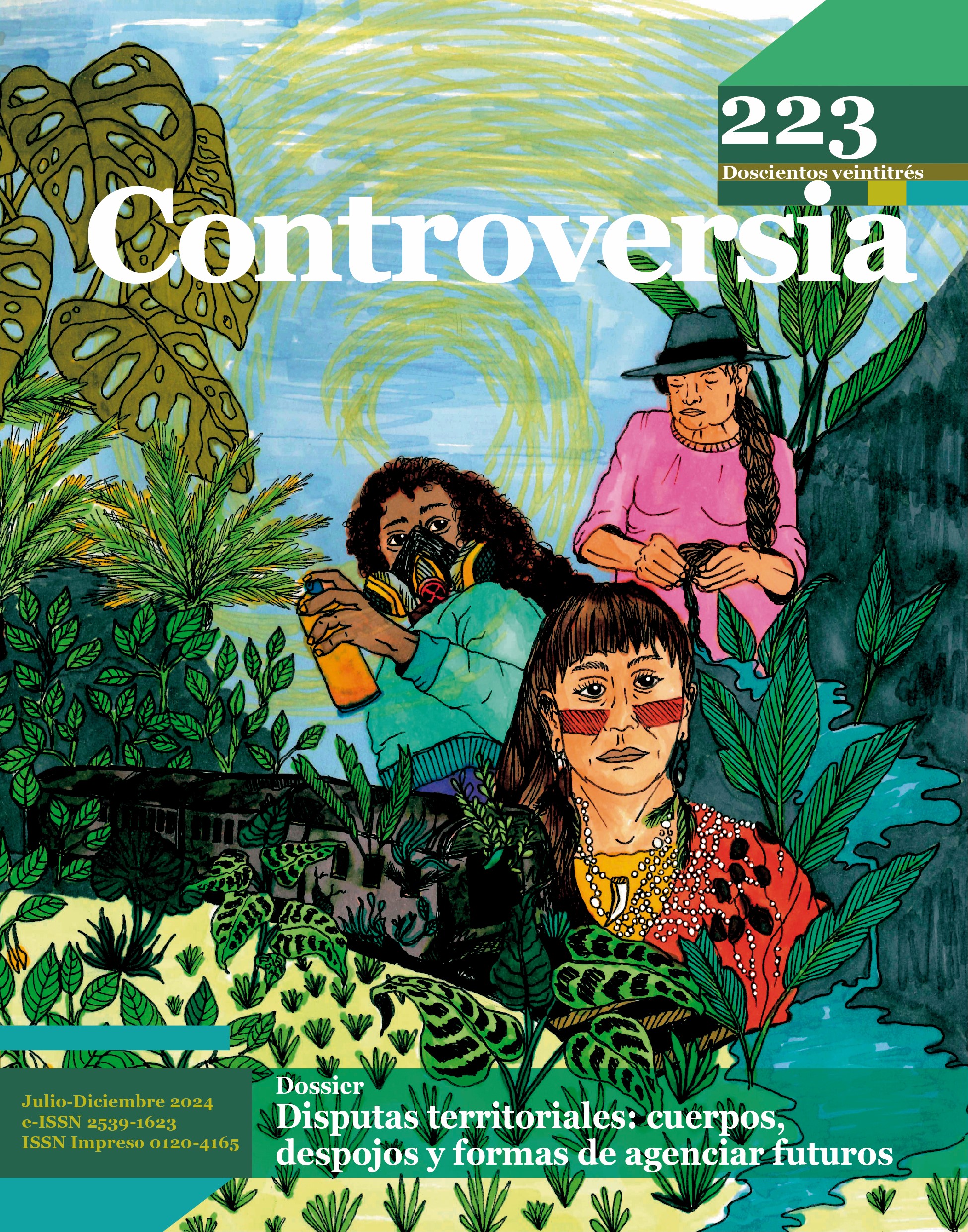Abstract
In light of the pressing environmental crisis, the article examines some of the most important aspects of John Rawls’ theory of justice, known for its contractual and pragmatic basis. Additionally, the article explores how some contemporary philosophers have attempted to enrich and extend this theory to include environmental aspects, drawing on the thought of the American philosopher. With regard to Axel Honneth, one of the principal contemporary representatives of the Frankfurt School, the article examines the most significantelements of his theory of recognition and its possible application to environmental justice. Finally, the article suggests that, although these theories provide valuable insightsfor the advancement of environmental justice, it is necessary to explore new theoretical frameworks of justice to address the pressing environmental crisis and the suffering caused by the devastation of our planet.

This work is licensed under a Creative Commons Attribution-NonCommercial 4.0 International License.
References
Arce, José y Ferrarons, Jaume. (2002). De la hermenéutica a la acción comunicativa: Entre la experiencia de la nada y la experiencia del tú. Logos, Anales del Seminario de Metafísica, 35, 241-272.
Bullard, Robert y Johnson, Glenn. (2000). Environmental Justice: Grassroots Activism and Its Impact in Public Policy Decision Making. Journal of Social Issues, 56(3), 555-578.
Caballero, José. (2006). La teoría de la Justicia de John Rawls. Iberóforum. Revista de Ciencias Sociales de la Universidad Iberoamericana, 1(2), 1-22. https://ibero.mx/iberoforum/2/pdf/francisco_caballero.pdf
Diabuno, Patricio. (2017). La teoría crítica de Axel Honneth ante la crisis ambiental: Límites de una teoría social basada en el reconocimiento (Tesis de maestría). Universidad de Chile. https://repositorio.uchile.cl/handle/2250/152216
Dobson, Andrew. (1999). El liberalismo y la política de la ecología. RIFP, 13, 11-20. https://dialnet.unirioja.es/servlet/articulo?codigo=2734507
Fascioli, Ana. (2011). Justicia social en clave de capacidades y reconocimiento. Areté. Revista de Filosofía, 23(1), 53-78.
Felipe, Sónia. (2006). Por uma questâo de justiça ambiental: Perspectivas críticas a teoría de John Rawls. ethic@, Florianópolis, 5(3), 5-31.https://periodicos.ufsc.br/index.php/ethic/article/viewFile/24857/22006
Florito, Alan. (2018). Axel Honneth sobre la Teoría Crítica de Max Horkheimer en Kritik der Macht. Cuadernos del Sur Filosofía, (47), 61-83. https://ojs.uns.edu.ar/csf/article/view/3242
Gimeno, Paz. (2012). La evolución de la Teoría Crítica: Reflexiones y digresiones sobre su vigencia para una educación crítica. Con-Ciencia Social, (16), 37-55.
González, Pablo. (2013). Ecocidio: conocimiento y corporaciones. Revista ALAI. https://www.alainet.org/es/active/62185
Goodin, Robert. (1985). Protecting the Vulnerable: A Reanalysis of our Social Responsibilities. University of Chicago Press.
Grijalba, Miguel. (2017). Combatir el olvido de la injusticia desde el liberalismo político: J. Shklar y A. Arteta. Oxímora, Revista Internacional de Ética y Política, (10), 101-119.
Habermas, Jürgen. (1998). Teoría de la acción comunicativa, I. Racionalidad de la acción y racionalización social. Taurus.
Habermas, Jürgen. (1992). Teoría de la acción comunicativa, II. Crítica de la razón funcionalista. Taurus.
Hartley, Troy. (1995). Environmental Justice: An Environmental Civil Rights Value Acceptable to All World Views. Environmental Ethics, 17(3), 277-289.
Hayward, Tim. (1995). Ecological Thought: An Introduction. Polity Press.
Honneth, Axel. (1997). La lucha por el reconocimiento: por una gramática moral de los conflictos sociales. Crítica.
Honneth, Axel (2009). Reconocimiento y justicia. Entrevista de Francisco Cortés. Estudios Políticos. https://www.researchgate.net/publication/277730486
Horkheimer, Max y Adorno, Theodor. (1998). Dialéctica de la Ilustración: Fragmentos filosóficos. Trotta Editorial.
Jamieson, Dale. (2007). Justice: The Heart of Environmentalism. En R. Sandler y P. Pezzullo (Eds.), Environmental Justice and Environmentalism. The MIT Press.
Kozlarek, Oliver. El redescubrimiento de la utopía y de la vida en la imaginación sociológica. Revista mexicana de ciencias políticas y sociales, 61(227). https://www.scielo.org.mx/scielo.php?script=sci_arttext&pid=S0185-19182016000200031
Leyva, Gustavo. (2016). Teoría crítica, tiempo y aceleración. Acta Sociológica, (69). Marcuse, Herbert. (1993). El hombre unidimensional. Ensayo sobre la ideología de la sociedad industrial avanzada. Planeta.
Martínez, Joan. (2021). El ecologismo de los pobres. Conflictos ambientes y lenguajes de valoración. Icaria.
Melero de la Torre, Mariano. (2004). El contrato social en el liberalismo político de Rawls. Revista de Derecho (Valdivia), 16, 9-31. https://scielo.conicyt.cl/scielo.php?script=sci_arttext&pid=S0718-09502004000100001
Myšička, Stanislav. (2015). Environmental Justice and Rawlsian Social Contract Theory. https://www.researchgate.net/publication/313881153
Ortega, César. (2017). Habermas y Marcuse: Divergencias en la Teoría Crítica. Daimon. Revista Internacional de Filosofía, (71), 47-62.
Plachciak, Adam. (2011). Environmental Justice in the Light of Political Philosophy – Chosen Aspects. Journal of International Studies, 4(1), 134-139.
Pritchard, Michael y Robison, Wade. (1981). Justice and the Treatment of Animals: A Critique of Rawls. Environmental Ethics, 3, 55-61. https://www.researchgate.net/publication/304695329_Justice_and_the_Treatment_of_Animals_A_Critique_of_Rawls
Rawls, John. (2006). Teoría de la justicia. Fondo de Cultura Económica. Rawls, John. (1999). The Law of Peoples. With, The Idea of Public Reason Revisited. Harvard University Press.
Roggerone, Santiago. (2019). Poder, reconocimiento, libertad: Axel Honneth y la actualidad de la teoría crítica de la sociedad. Sociológica, 97(34), 9-41.
Rousseau, Jean. (1999). El Origen de las Desigualdades entre los Hombres. Ediciones Universales.
Schramme, Thomas. (2006). Is Rawlsian Justice Bad for the Environment? Analyse & Kritik, 28, 146-157.
Tello, Felipe. (2011). Las esferas de reconocimiento en la teoría de Axel Honneth. Revista de Sociología, 26, 45-57. https://www.researchgate.net/publication/269970571_Las_esferas_de_reconocimiento_en_la_teoria_de_Axel_Honneth
Thero, Daniel. (1995). Rawls and Environmental Ethics: A Critical Examination of the Literature. Environmental Ethics, 17(1), 93-106. https://philpapers.org/rec/THERAE-2
Valdivieso, Joaquín. (2004). ¿Hay un lugar en Rawls para la cuestión ambiental? Revista Isegoría, (31), 207-220.
Valenciano, José. (25 de noviembre de 2012). John Rawls: el último gran contractualista. La justicia como equidad. http://lajusticiacomoequidad.blogspot.com/2012/11/john-rawls-el-ultimo-gran.html
Vidal, Paula. (2009). La teoría de la justicia social en Rawls ¿Suficiente para enfrentar las consecuencias del capitalismo? Polis, Revista Latinoamericana, 23. https://journals.openedition.org/polis/1868#bodyftn2



